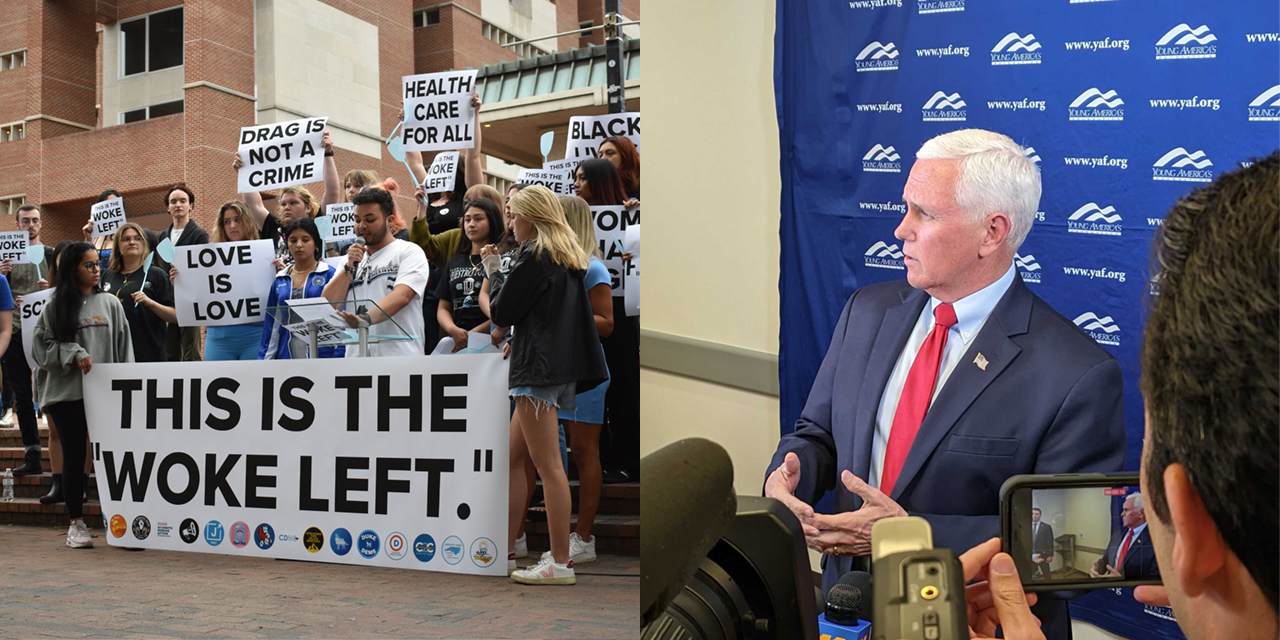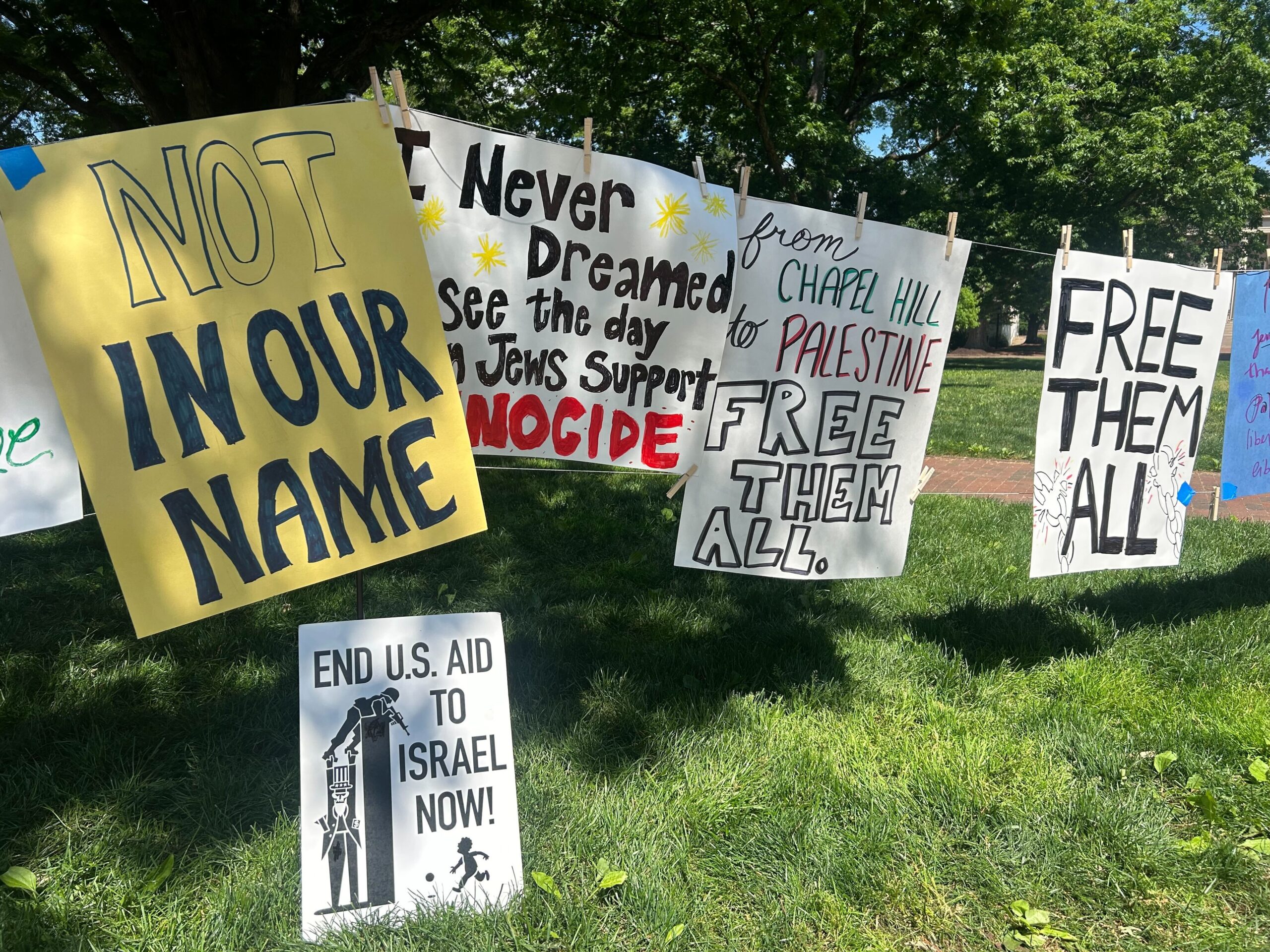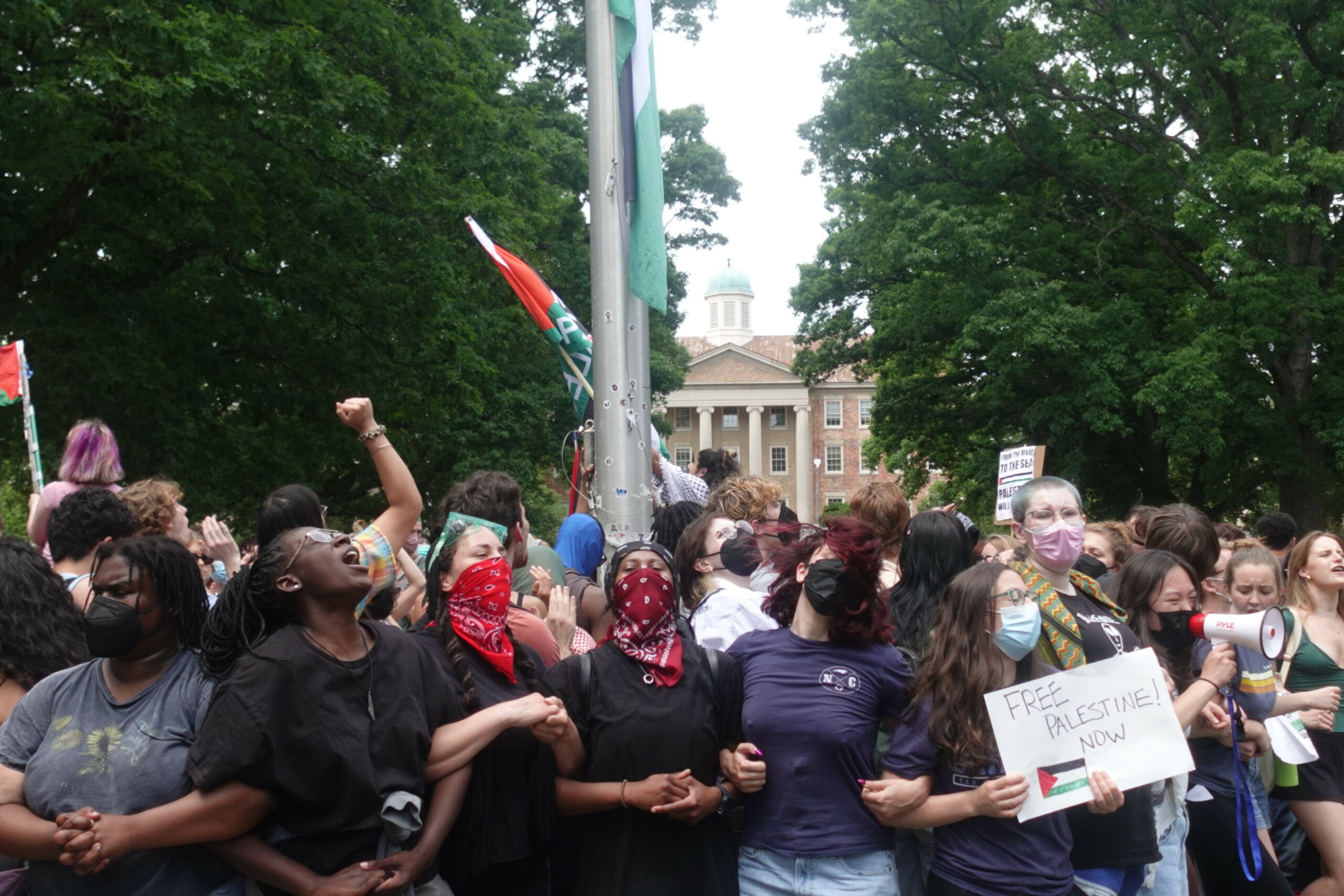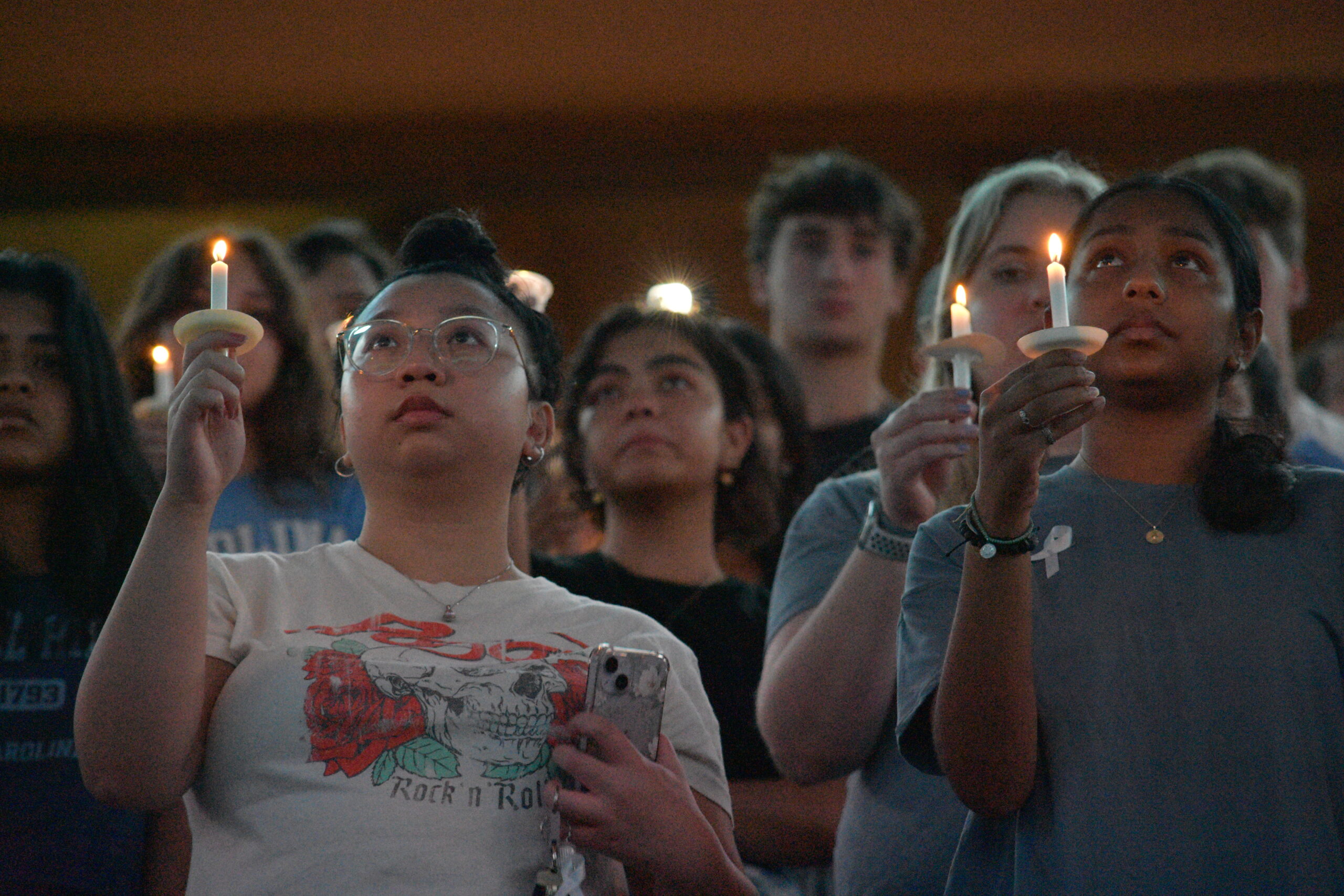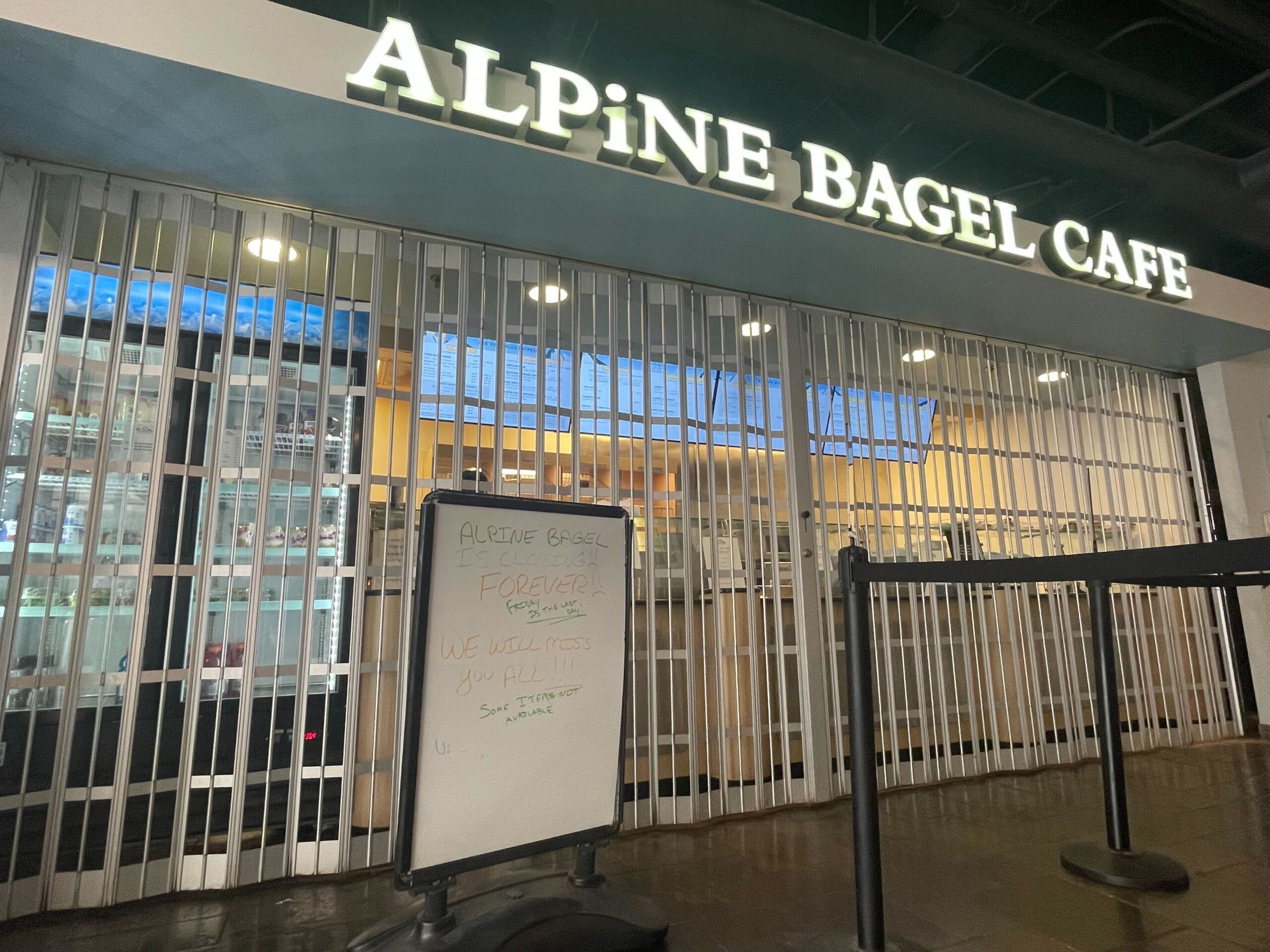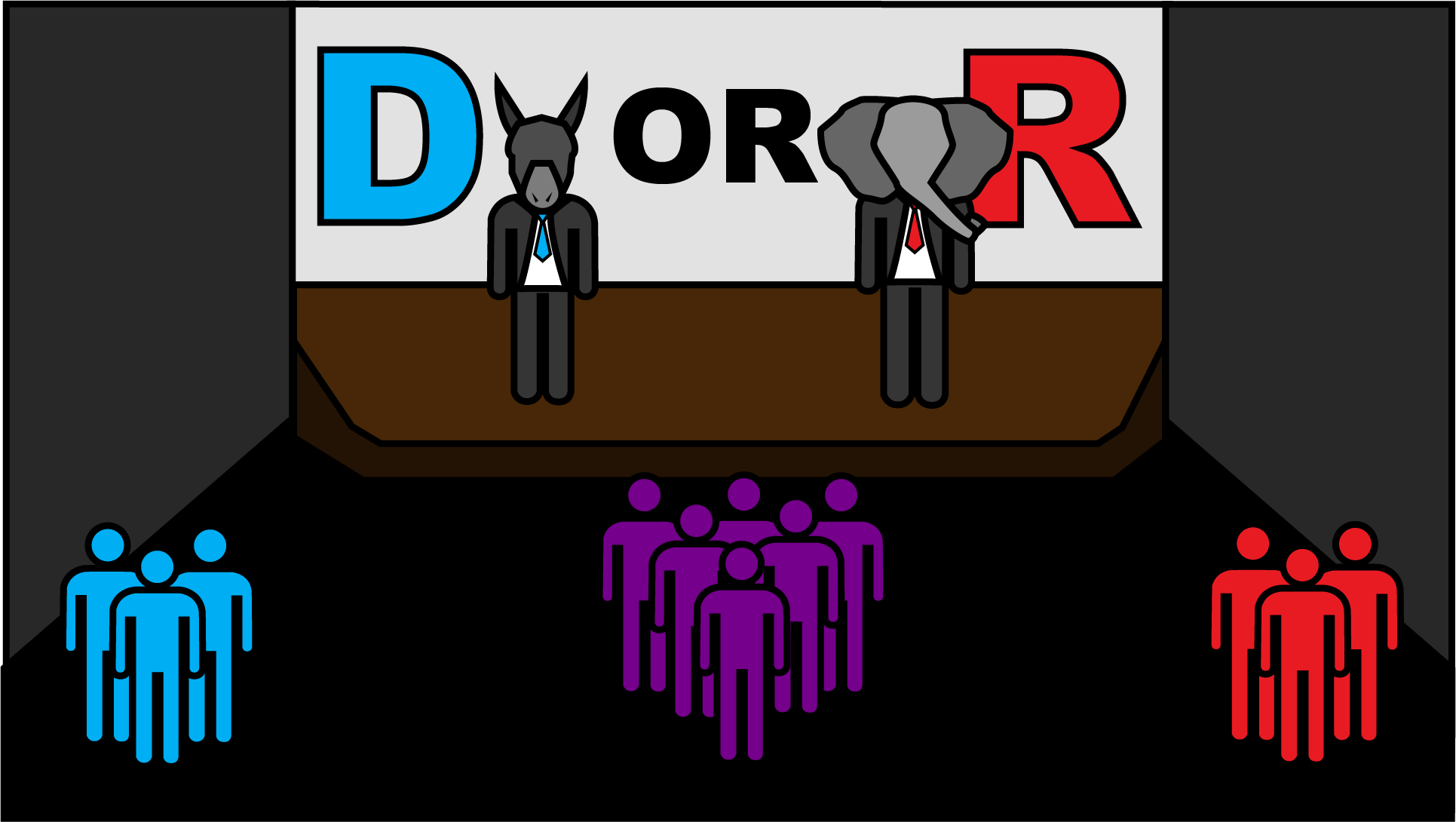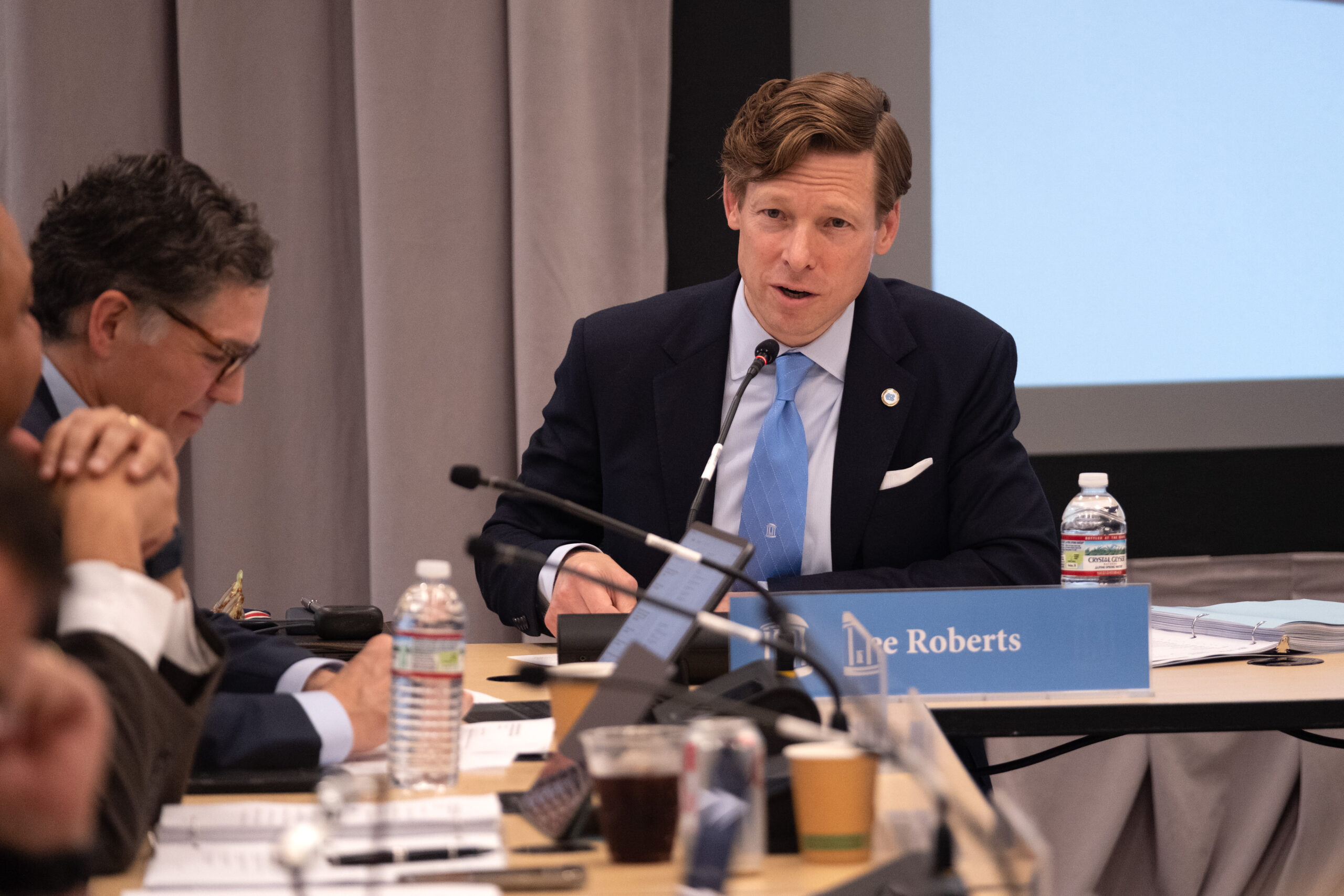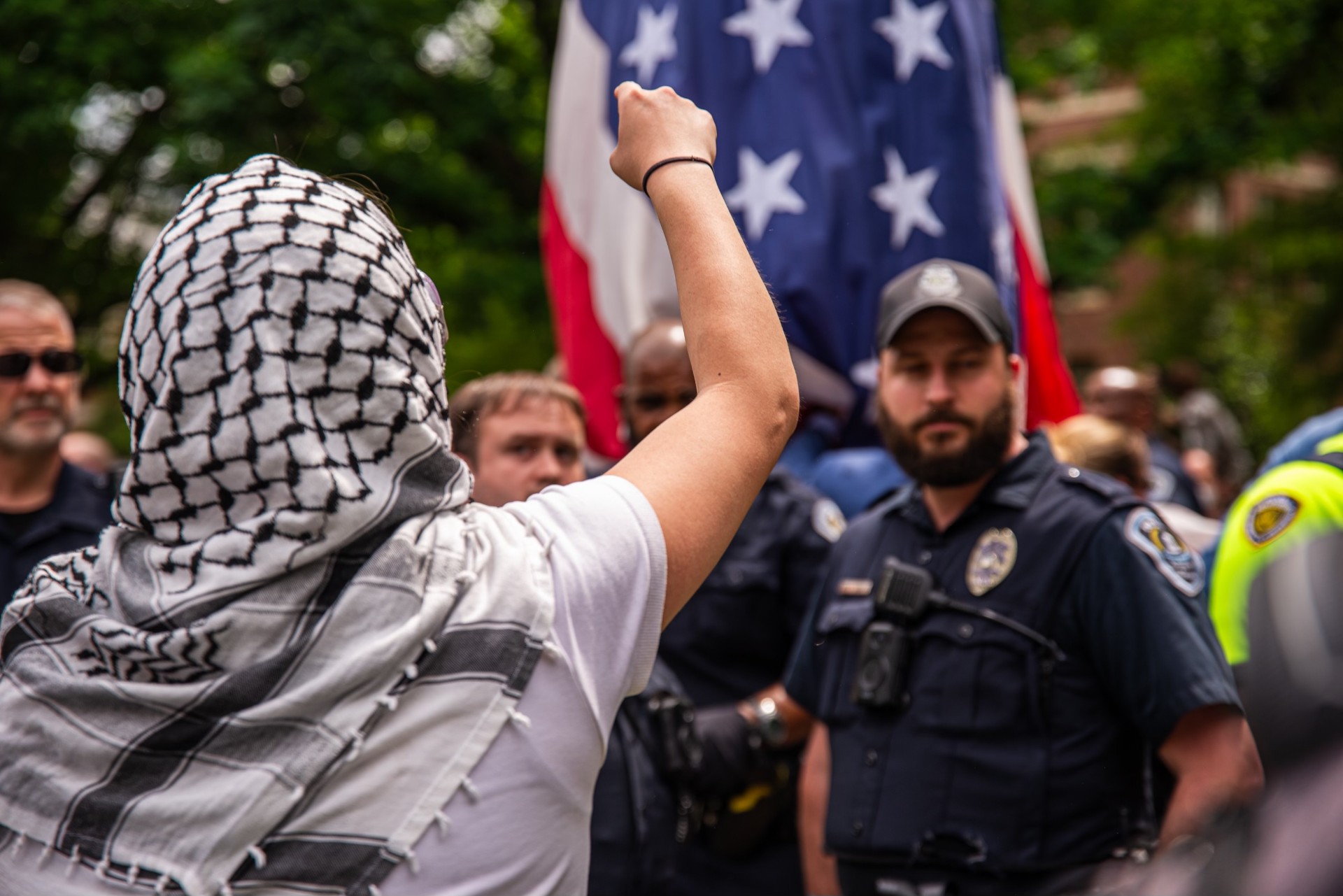A group of UNC faculty and staff members say they may wait to submit final grades for courses to protest the treatment of students during last week’s protests on campus and in solidarity with the movement asking universities to divest from financial support of Israel.
The organization UNC Faculty and Staff for Justice in Palestine held a gathering of the media on Monday afternoon in Chapel Hill to share their perspectives and read an open letter to UNC administration — which it later delivered to South Building — criticizing the university’s response to pro-Palestine demonstrations. At the Peace and Justice Plaza on East Franklin Street, about two dozen employees of the university stood together to call for UNC leaders to reverse punishments given to student demonstrators protesting Israel’s military offensive against Hamas in Gaza.
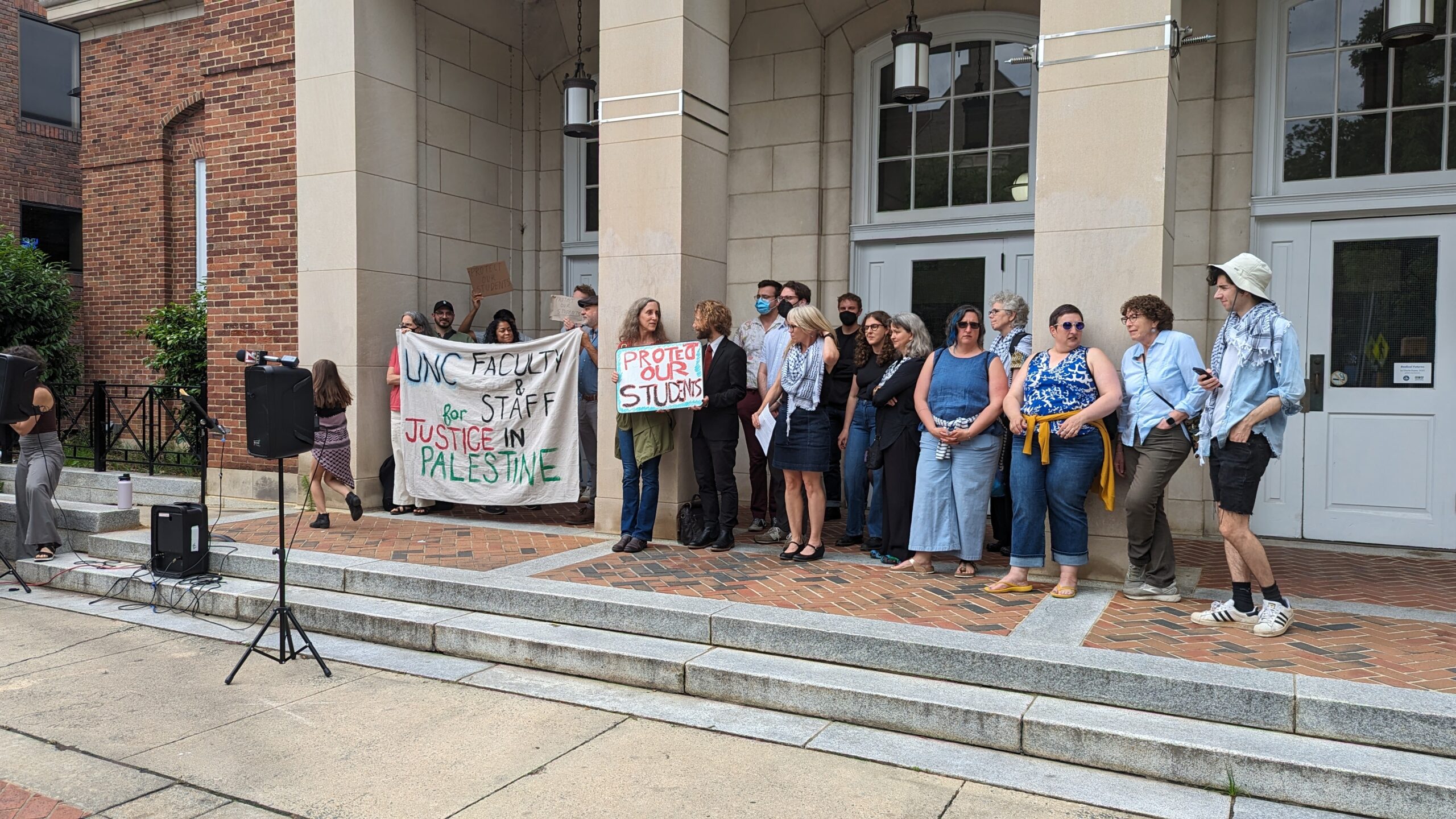
Members and supporters of UNC Faculty and Staff of Justice in Palestine gather at the Peace and Justice Plaza in Chapel Hill on Monday, May 6 for a press availability and rally.
The letter — which had garnered more than 760 signatures from UNC faculty and staff before its delivery — shares concerns of how UNC Police handled students exercising their free speech, saying the police force seen last Tuesday “created a militarized and unsafe climate on the UNC campus” and “subjected the very students it is charged with protecting to violence and trauma.” While the university maintains the encampment protest at Polk Place violated policies by having temporary structures in public areas, accessing academic buildings overnight and “materially disrupted” campus operations, the organized faculty said the treatment of such students is unjust.
Some organizers of UNC Students for Justice in Palestine (SJP) also spoke at the event, sharing the perspectives of those they say are suspended from campus and who were in the fray with police officers last week. The organization, which has since seen its affiliation to UNC suspended during an investigation, claims that more than a dozen students involved in Tuesday’s demonstrations are suspended from classes fulfill their degrees and are not allowed to return to campus for two years. UNC did not distinguish whether any campus community members are facing charges or punishment from the clash between protesters and police over the Polk Place flagpole, which saw demonstrators take down the U.S. flag in place of a Palestinian flag.
A statement from media relations to Chapelboro said they would not disclose details about student conduct cases because of federal privacy laws — but the university shared last week that police detained 36 people in total over the encampment protest, 16 of whom are Carolina students. Suspensions from UNC are determined by the Emergency Evaluation and Action Committee, which is made up of both administrators and student representatives, when a student’s action or behavior “poses a serious threat of disruption of the academic process or a continuing danger.”
“We, as Faculty and Staff for Justice in Palestine, stand shoulder to shoulder with our students and demand that all suspensions be dropped against them,” Trương said through a megaphone, “and are taking a time-honor, non-violent stance of civil disobedience to ensure that this will happen. We know that the administration is currently sending out emails trying to cause fear in students, in faculty and to paint the faculty as the ones who are causing harm to our students. This is false. The violence exerted against our students by Interim Chancellor Roberts last Tuesday is the real harm here, not this withholding of grades.
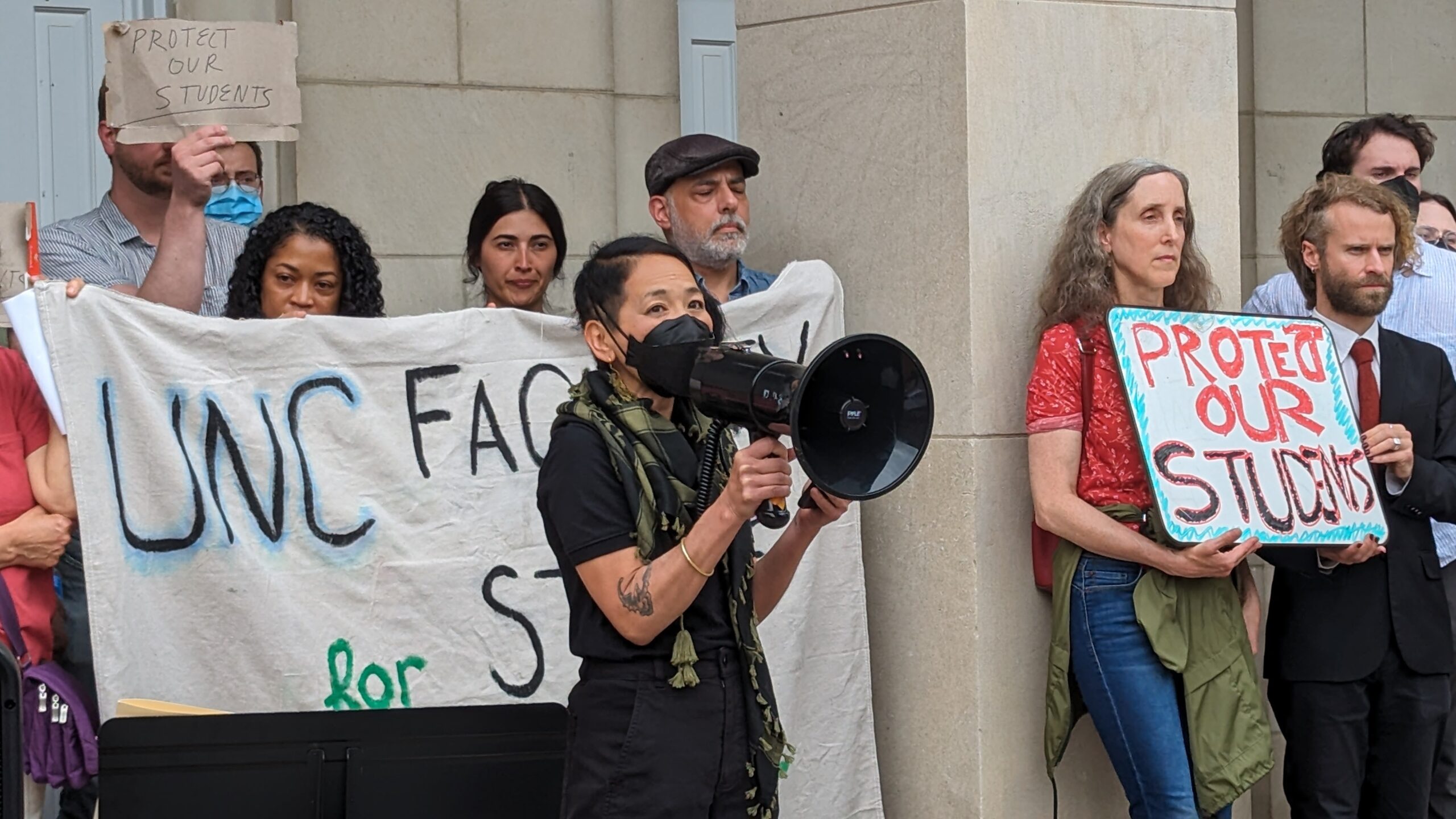
Hồng-Ân Trương, the director of graduate studies for studio art and a professor of art history, speaks to the crowd and media on Monday.
Both SJP and its partnering faculty organization maintain that the encampment protests were peaceful in nature, with any violence taking place after police arrived at 6 a.m. on April 30 to sweep the site upon the request of UNC administration. The group also claims an image shared by the university as a justification for why the encampment needed to be cleaned up was “purposely misleading,” with UNC distributing a photo after police had broken tents and disrupted the scene with their arrests. The group was also directly critical of UNC Interim Chancellor Lee Roberts, who led a group of two dozen police officers to restore the U.S. flag on the afternoon of April 30, with videos of the scene showing officers pulling students to the ground to break their human chain.
Michael Palm is an associate professor in UNC’s communications department, who is a representative for UNC Faculty and Staff for Justice in Palestine and who has shared is a Jewish supporter of Palestine’s sovereignty. He told Chapelboro the sheer amount of signatures the organization earned since the open letter began over the weekend reflects how the much of the campus community is against the university’s response to the pro-Palestine demonstrations.
“I think,” Palm said, “the fact that we attracted 750 signatures to a letter demanding the suspensions be lifted and demanding accountability for administrators from Interim Chancellor Roberts on down — and the fact that we did it from Saturday morning to Monday morning during finals — speaks to the fact that there is a widespread consensus on campus that the militarization of our campus by the administration is unacceptable. There was no violence at the encampment. There was no violence on campus until interim Chancellor Roberts and the UNC administration invited militarized police onto our campus to attack students.”
While both were major talking points at Monday’s demonstration, the letter circulated by faculty and staff urging for students’ amnesty does not contain language about the signees agreeing to withhold final grades.
The graduate student equivalent of UNC SJP also put together a letter on April 30 that has garnered more than 3,100 signatures from UNC alumni. The letter criticizes the use of police force used against protesting students, urges the university reinstate any who are punished for their participation, and calls for UNC to divest from any companies who profit from the war in Gaza. Meanwhile, another letter praising the university’s handlings of Tuesday’s protests — saying the signatories support lawful free speech and that policies are uniformly enforced — has gathered more than 1,000 names from UNC faculty, students, and outside supporters.
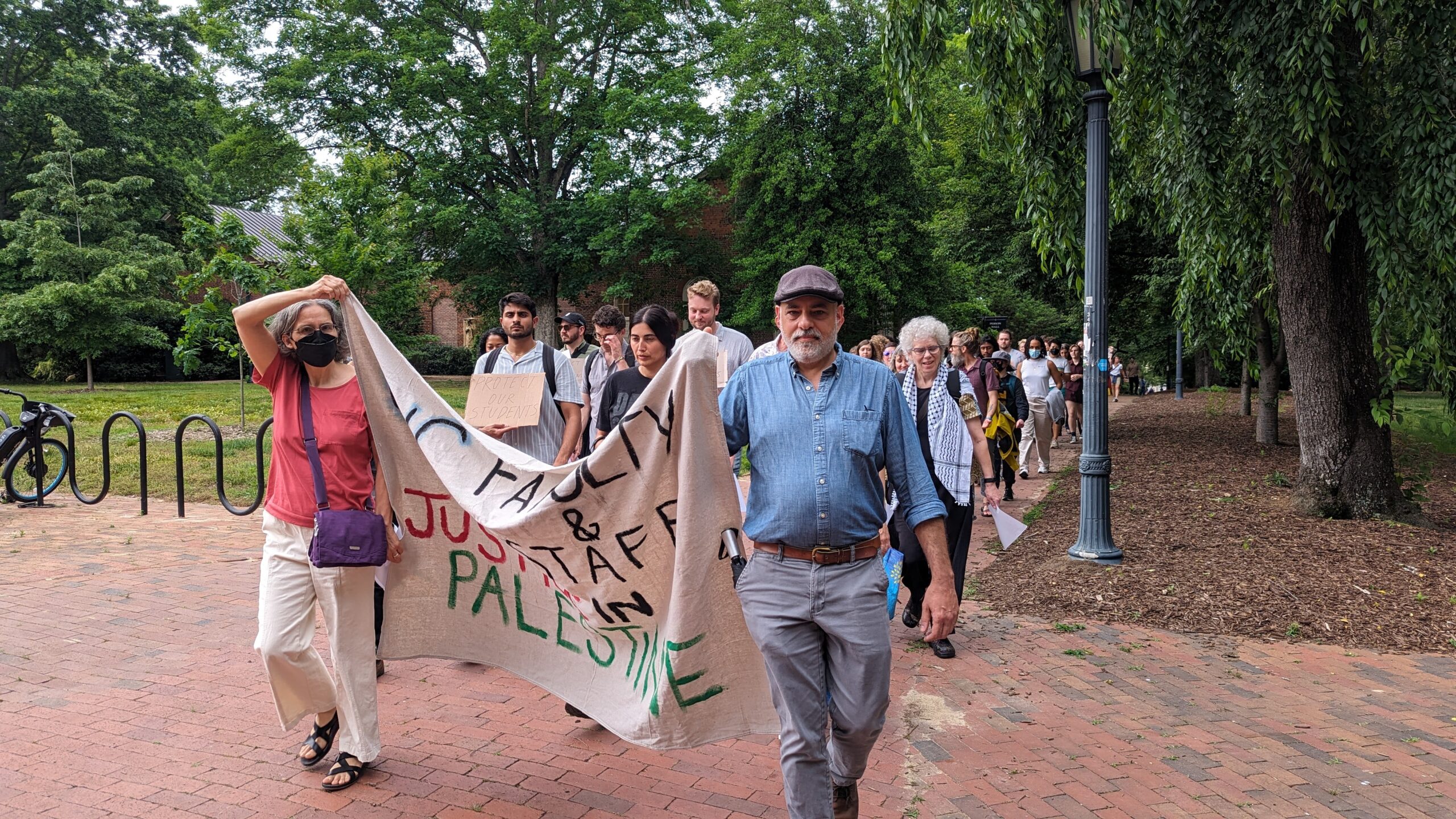
Demonstrators with UNC Faculty and Staff for Justice in Palestine march on the Chapel Hill campus to South Building.
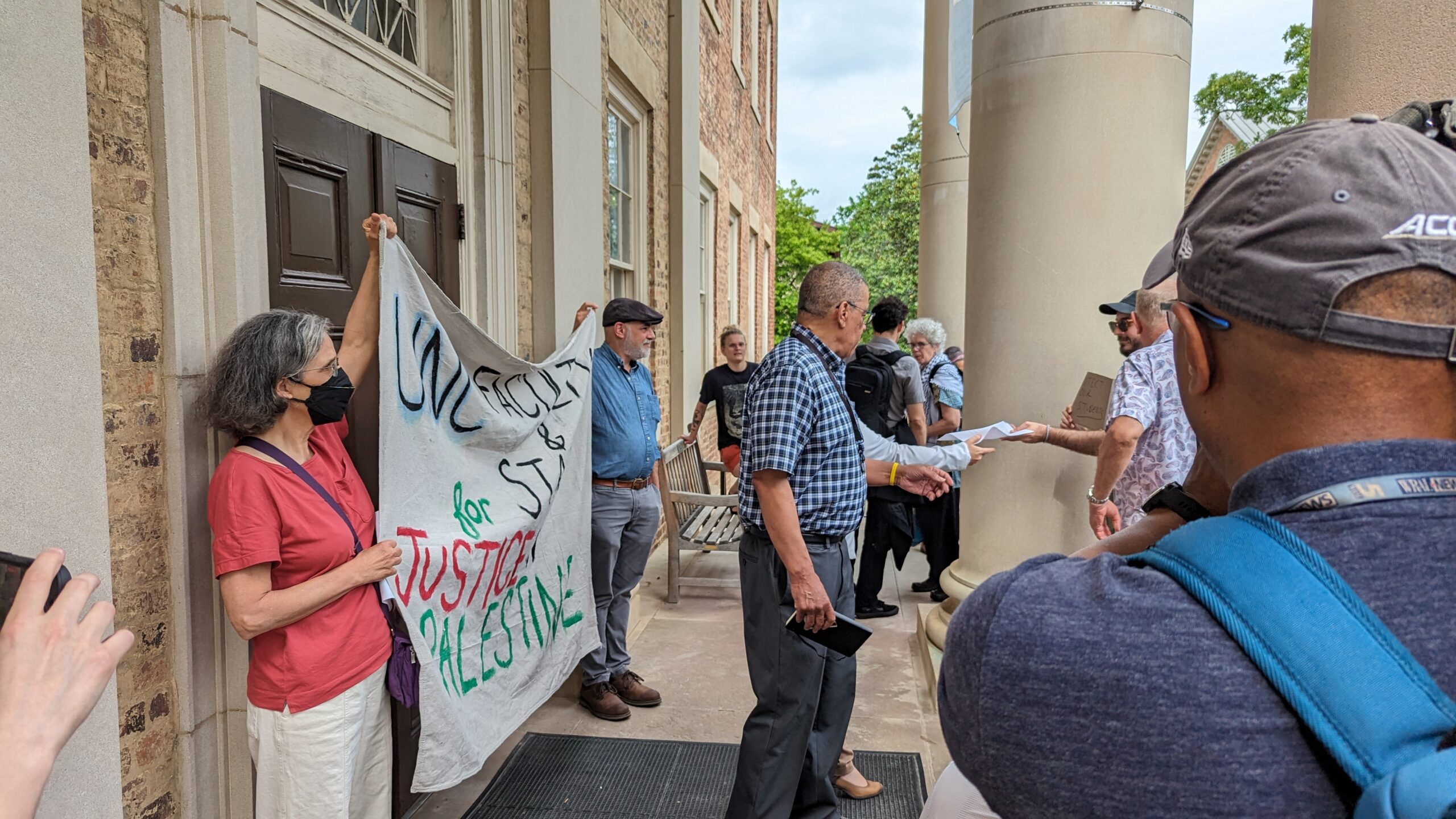
Protesters deliver an open letter signed by more than 700 faculty and staff to UNC administrators at South Building, including Vice Chancellor for Communications Kamrhan Farwell.
UNC SJP also organized a form for undergraduate students to use advocating its cause, which alerts instructors that the students support any withholding of final grades as the academic year comes to a close. Sunday marked the first day faculty are expected to have returned final grades to the university, with the exception of classes that do not have a final exam. UNC’s registrar office says any outstanding grade rosters will be listed as Not Reported, or NR, beginning Tuesday, May 14.
Will instructors in UNC Faculty and Staff for Justice in Palestine hold those final grades back from the university and risk facing sanctions? Palm said Monday the group will support the call issued by UNC’s students who believe their free speech and peace was infringed upon, saying the faculty are “prepared to do everything that it takes.”
“Forty-thousand dead in Gaza, a million displaced, famine conditions, and students have been arrested and suspended,” Palm listed off. “The matter of grades is an inconvenience compared to the violence that UNC administrators have invited onto our campus.”
Editor’s Note: The letter circulated to faculty and staff does not contain language about the signees agreeing to withhold final grades. The story has been updated to clarify this fact.
Chapelboro.com does not charge subscription fees, and you can directly support our efforts in local journalism here. Want more of what you see on Chapelboro? Let us bring free local news and community information to you by signing up for our newsletter.

